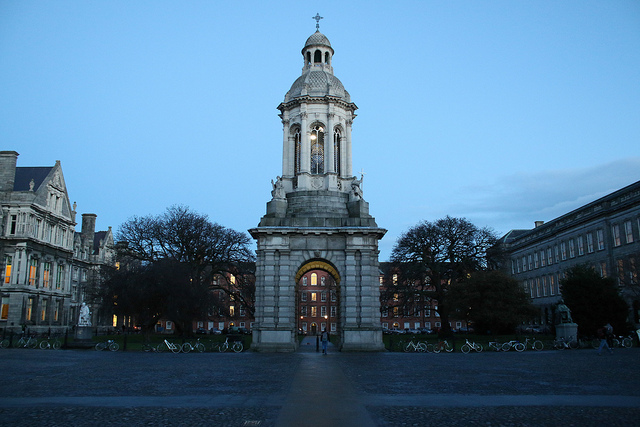It is all too easy to view Trinity’s recent increase in fees for non-EU students as something that should be categorically opposed. After all, it is difficult to deny that international students are a primary source of income for the college: the fees that this cohort of students pays are substantially higher than those that are paid by Irish students, or students from the EU. A large proportion of Trinity’s marketing material is focused on promoting the College to international students. This is why, when coupled with the non-EU fee increases, Trinity’s strategy could be viewed as a soulless cash-grab, a way of luring in international students for the sole purpose of profit. Yet, it’s difficult to ignore that, by focusing on this sector of students, the College significantly increases its income. In the past few weeks, the dire higher-education funding situation has come to the fore with real consequences. Eight staff from the Philosophy Department were lost, a report feared for the continued existence of the School of Social Work and Social Policy and unprecedented cuts to the Student Counselling Service became apparent. Non-exchequer funding continues to decrease, and unfortunately, Trinity is forced to find other sources of income.
Opposing all increases and all fee introductions is a thing that students’ unions do. They represent the students. That is their mandate. But the funding situation demands that the College do something, or else face decimation of academic departments and services across the board. The money literally has to come from somewhere. And while we certainly don’t gleefully welcome increases in fees, the education provided in the college is still extremely good value, for Irish, EU, and international students. This is especially clear when we compare the situation to that in other colleges of a similar status. The Provost recently made a statement at the recent Irish Universities Symposium on the performance and sustainability of Irish Universities regarding this matter: “On a per academic basis, Trinity’s annual budget is 45 percent lower than that of the average top 200 university”. It’s also worth noting that, on a percentage basis, the student contribution charge for Irish students is still growing at a faster rate than the fees for international students.
No-one should commend Trinity’s decision to increase fees for international students. But in light of a funding crisis where there seems to be no solution and where the government keeps kicking the can down the road, and in light of the education that Trinity does provide, it isn’t something to be wildly up in arms about.
Also in Editorial this week: UCCSU’s “Wipe the Slate” Motion Should Teach Unions to Remember the Basics
Written by the Editorial Board of The University Times







